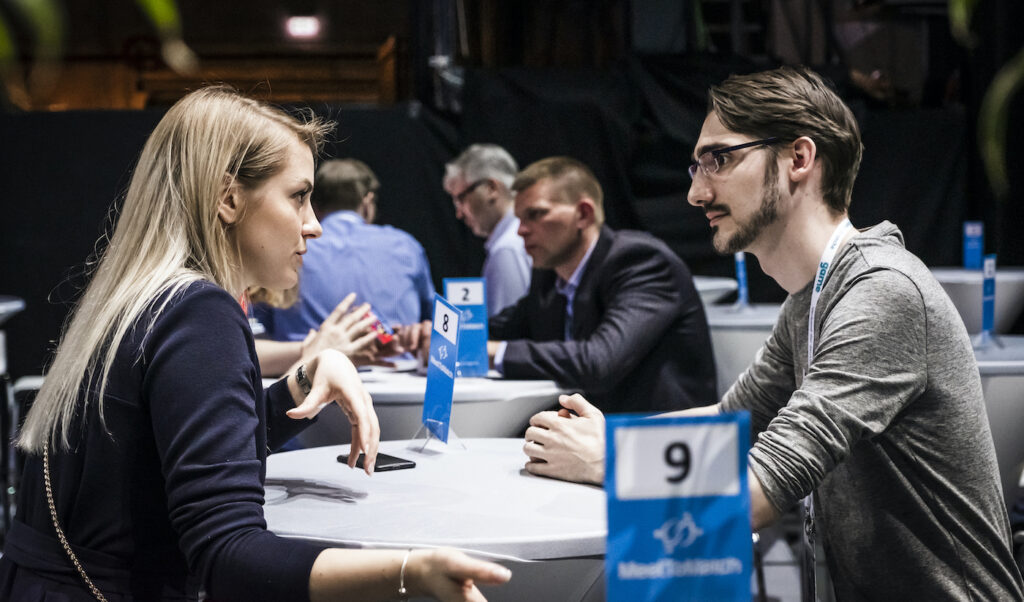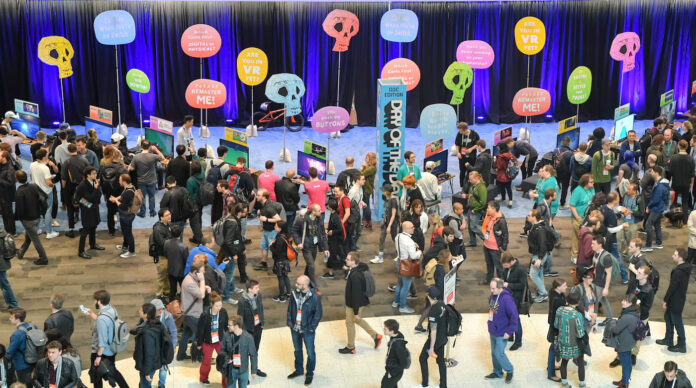More than 10.000 games were released on Steam last year. On average, that’s more than 27 games per day. And that’s including weekends, holidays and other unpopular release days, so the actual number is even higher. And these are only the games that did get released on Steam, because there are also games that don’t even make it that far.
Competition is fierce, also before release. Press, platformholder and publisher mailboxes are overflowing with pitches and press releases, so if you want to have a chance of succeeding, you have to stand out.
Having a good game absolutely helps, but it’s no guarantee for success, because even good games can have a hard time getting discovered. Especially when you decide to self publish your game. Without the PR and marketing power that a publisher offers, an unknown developer has to hire external help or do a lot of leg work.
Cross promotion
Even the great cheap -or even free- cross promotion tips that Philomena Schwab, co-founder of successful indie developer Stray Fawn Studio, gave in her DevGAMM talk come at a cost. Not only because they cost time, but also because it works best if you have a solid network of other developers that you can cross promote with.
This means that you have to get to know them and to do so you have to be where other developers are. This can be close to home, at local meetups that are slowly coming back to life, but if you want to extend your network in a short period of time, attending bigger events is extremely helpful.
Events (remember those?)
Attending events costs money, even during the pandemic, when travel costs are zero. And when you spend money it’s good to set yourself some goals for attending an event, and to find the events that fit those goals best. If you are on a tight budget and you can only pick one event per year, make sure that it can benefit you and your game in more than one way.
Networking with other devs is great, but getting to know journalists and platform representatives is also important when you want to publish your own game. An email in the inbox of a journalist from a person they know or a game they have heard of before is more likely to be read than an email from a complete stranger. Especially when their inbox is overflowing with emails from devs and publishers who want to share news about their games.
Needless to say that events are also great to meet publishers, for those of you who don’t want to publish a game yourself. Their inboxes also get bombarded with pitches from developers, so it’s great if you get an opportunity to tell them about your game early on in development.

Make connections
If you are attending an event, it is worth it to check out side events that can help you to make the right connections. The Nordic Game Conference has their Discovery Contest which puts developers in front of publishers and investors at various events. Pocket Gamer does the same with The Big Indie Pitch. Most events offer some form of meeting tool that helps you connect faster with other attendees. In most cases you have to pay a bit extra to get access to these tools. Whether it’s worth the extra money depends on your goals and the network you already have. The free approach is to try to find out who is attending which events and contact them directly, but without a network this is very time consuming.
Now that the world is opening up again and more events are going back to physical, it’s also worthwhile to start researching side events on location. The MIX (Media Indie Exchange) brings together showcasing developers with their peers and members of the press, representatives of platforms and publishers. The European Game Showcase at GDC helps developers connect with publishers, platform holders and press in a more quiet and businesslike setting. Matchmaking between developers, publishers and investors is done by MeetToMatch, both online and on site. Check the event calendar for an event near you. And every large event has tons of mixers and networking parties during the night time that are great to broaden your network.

Travel around the world?
And even with physical travel coming back: You don’t have to travel to the other side of the world if you cannot afford to. Try to find a large(r) event that’s closer to home. If you don’t know where to start your research, check out Pavol Buday’s Game Conference Guide. If you want to know which event works best for you, ask other developers about their experience. But make sure to ask specific questions relating to your goals, so you get useful information. Asking if an event is ‘good for indie developers’ is too random, because it depends on what you are looking for in an event, and whether the person answering your question was looking for the same.
If you want to give your studio and your games a chance of success, you have to invest in attending events. How much money this costs depends on the event and how much time you are willing to invest to save on out of pocket spending. No matter how much sweat equity you put in, you’ll need some cash, because a budget of zero will get you nowhere. But if you are building a sustainable development studio, building your network and attending events is a good investment in your future.

